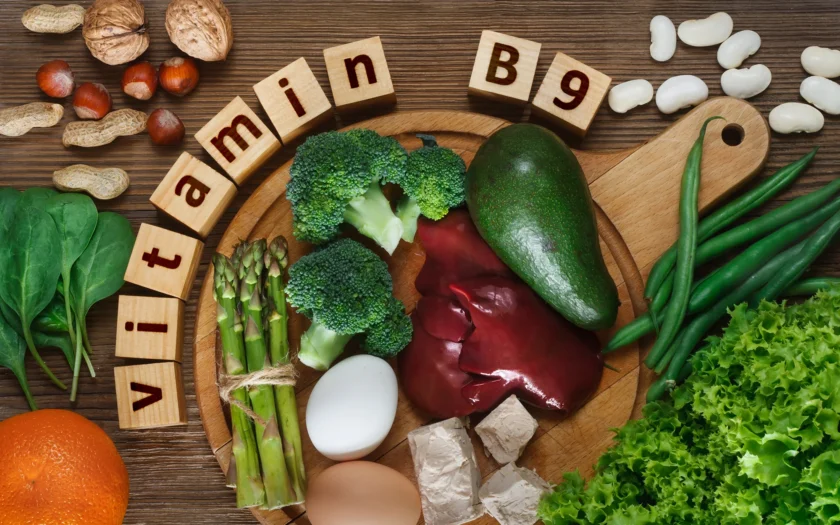Folate, also known as vitamin B9, is a vital B-group vitamin essential for healthy growth and development, particularly during pregnancy. When naturally occurring in food sources like leafy green vegetables, fruits, and legumes, it is referred to as ‘folate.’ However, when added to processed foods such as bread and breakfast cereals, or incorporated into dietary supplements, it is known as ‘folic acid.’
This distinction between folate and folic acid is crucial, as both play critical roles in supporting maternal and fetal health. Adequate intake of folate/folic acid is essential for preventing neural tube defects and supporting proper fetal development, underscoring the importance of incorporating folate-rich foods into the diet and considering folic acid supplementation before and during pregnancy to ensure optimal maternal and infant health.
The Vital Role of Folate in Pregnancy Health: Understanding its Importance for Maternal and Fetal Well-being
Folate and folic acid play a critical role in pregnancy by helping to prevent neural tube defects, including the prevalent birth defect spina bifida. Neural tube defects like spina bifida occur during the early weeks of pregnancy when the neural tube, which develops into the brain and spinal cord, is forming.
Adequate folate intake, either through natural food sources rich in folate or through folic acid supplementation, is essential before and during the first trimester of pregnancy to significantly reduce the risk of neural tube defects. By ensuring sufficient folate levels, expectant parents can safeguard the health and development of their baby’s nervous system, underscoring the importance of incorporating folate-rich foods into their diet and considering folic acid supplementation as part of prenatal care.
Folate-Rich Foods: A Guide to Boosting Your Intake for Pregnancy Health
Numerous foods naturally contain folate, although its content can diminish with cooking, especially when exposed to water. To preserve folate levels, it’s advisable to lightly cook vegetables or consume them raw, with microwave or steam cooking being optimal methods.
Here are some excellent sources of natural folate:
- vegetables. Broccoli, Brussels sprouts, cabbage, cauliflower, spinach, green beans, lettuce, mushrooms, parsnip, sweet corn, zucchini;
- fruit. Avocado, grapefruit, oranges, berries, bananas;
- legumes. Chickpeas, soybeans, lima beans, red kidney beans, lentils, haricot beans;
- eggs;
- nuts;
- juices. Many apple and orange juices;
- vegemite.
In Australia, regulations mandate that all bread-making flour, except for organic varieties, must be fortified with folic acid. Additionally, some breakfast cereals also contain added folic acid. On average, three slices (100g) of bread provide around 120 micrograms of folic acid. To identify folic acid-fortified products, consumers can check food labels, where folic acid may be listed as folate in the ingredients.
Timing Matters: Understanding the Best Time to Begin Folic Acid Supplementation for Pregnancy
Commence daily folic acid supplementation at least one month before actively attempting to conceive and continue throughout the first trimester of pregnancy. If you haven’t previously taken folic acid supplements before becoming pregnant, initiate supplementation as soon as pregnancy is confirmed.
In Australia, folic acid supplements are readily available over the counter at pharmacies and supermarkets, as well as through medical practitioners who can provide guidance on appropriate dosage based on individual needs and circumstances.
Folic Acid Requirements for Pregnancy: Understanding the Optimal Dosage
Typically, when trying to conceive or during the initial stages of pregnancy, it’s recommended to take a supplement containing at least 400 micrograms (µg) of folic acid.
In Australia, most folic acid supplements are available in a daily dose of 500µg. These supplements are offered either as standalone folic acid supplements or as part of specialized pregnancy formulations, which may also include other essential nutrients.
While many multivitamins contain folic acid, it’s essential to avoid duplicating certain vitamins to prevent excessive intake. Therefore, consulting with your healthcare provider to ensure you’re receiving the recommended dosage is imperative.
Individual folate needs may vary, with some individuals requiring higher doses. It’s advisable to discuss your specific requirements with your doctor to determine the appropriate dosage for your situation.
Deciphering Folic Acid Needs: Understanding When a Higher Dosage is Necessary
Certain pregnancies carry a heightened risk of neural tube defects, necessitating a higher dosage of folic acid supplementation. In such cases, your healthcare provider may advise taking a daily dose of 5 milligrams (mg) of folic acid until the 12th week of pregnancy. Your doctor will assess your individual risk factors when determining the appropriate folic acid dosage. Factors that may influence this decision include:
- personal or familial history of neural tube defects;
- previous pregnancy affected by a neural tube defect;
- diabetes diagnosis;
- body mass index (BMI) exceeding 30;
- medical conditions impairing nutrient absorption;
- use of epilepsy medication.
If any of these risk factors apply to you or your partner, consulting with your healthcare provider is essential. They can evaluate your risk profile and prescribe a higher dose of folic acid if warranted.
Additionally, your doctor or midwife may recommend additional screening tests during your pregnancy to monitor for neural tube defects or other related conditions, ensuring comprehensive care and optimal outcomes for both you and your baby.
Understanding Folic Acid Overdose: Risks and Effects of Excessive Supplementation
In the event of accidentally taking an additional dose of folic acid alongside your standard daily supplementation, there is typically no need for alarm.
Folic acid, akin to other B-group vitamins, is water-soluble. Consequently, any surplus folic acid that your body does not absorb will be naturally excreted through urination.
Nevertheless, if you suspect that you’ve ingested an excessive amount of folic acid, it’s advisable to seek guidance from your healthcare provider or contact the Poisons Information Centre for further assistance.



